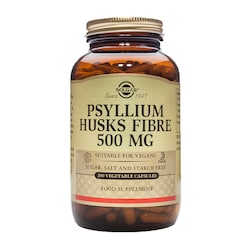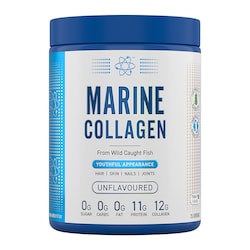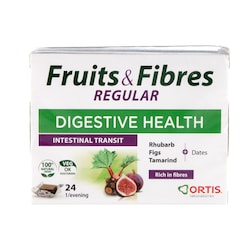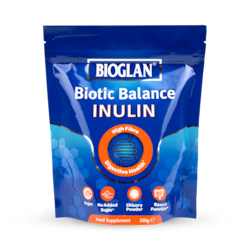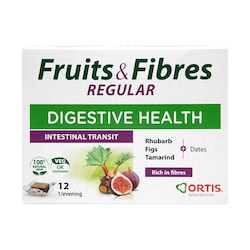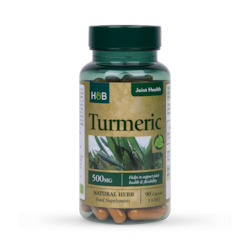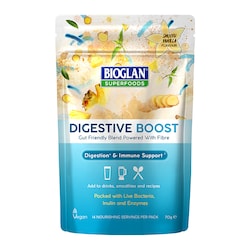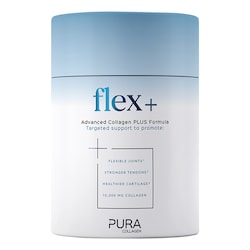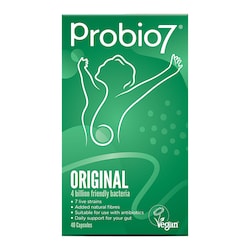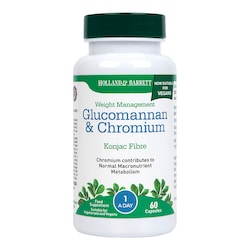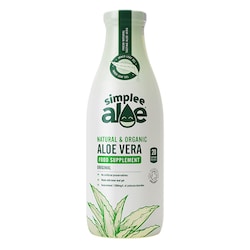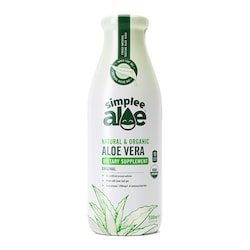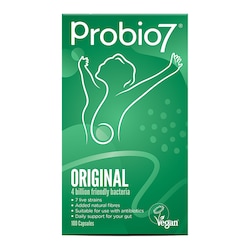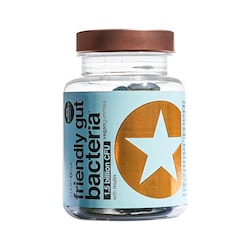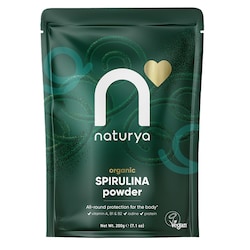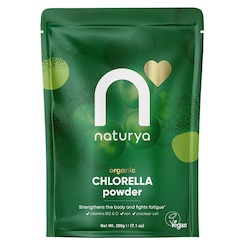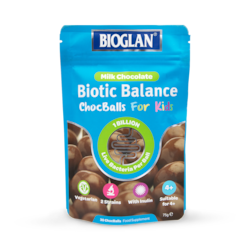20% off £30
Code:QUICK
Inulin powder - everything you need to know

What is inulin powder? What is it good for and how do I get more in my diet? Read on for an overview of the health benefits of inulin supplements.
Summary
1What is the best source of inulin?
Inulin can be found in 36,000 types of plants. Arguably the best source of inulin is chicory roots but onion, garlic, and some whole grains...
2Is inulin good or bad for you?
Firstly, the good news – inulin is naturally low in calories, is high in fibre and is vegetarian and vegan friendly. Inulin offers a host of health...
3Is inulin a prebiotic?
Inulin is a type of fructo-oligosaccharide, which is a prebiotic. According to The British Nutrition Foundation, regular consumption of prebiotic...
Fibre isn’t the most glamourous nutrient, but it’s vitally important to the function of your gut and your overall wellness.
And the reality is most of us don’t eat anywhere near enough.
This post introduces inulin powder as an alternative way to pad out your ingestion of roughage.
What is inulin good for?
Inulin is a natural, plant-derived source of non-digestible carbohydrate and dietary fibre.1 But what you’re probably wondering is, how could inulin powder help you?
Inulin is said to have a positive effect on bowel function by influencing intestinal biota.2
Researchers who looked at data from a range of clinical trials found that inulin can have a positive effect on stool frequency and consistency.3,4 In one study of people with low stool frequency, 10g per day of native chicory inulin increased stool frequency.5
Inulin can also help calcium absorption and bone mineral mass, according to a study on adolescents who regularly consumed inulin-type fructans.6
For anyone looking for help with a weight management program, inulin can support weight loss and prevent weight gain.7,8
Inulin weight loss occurs due to decreasing feelings of hunger, which can help with regulating appetite and food intake.
In one study, people consuming higher levels of inulin report decreased appetite for sweet, salty and fatty food.9
In addition, as a soluble fibre, it also helps you feel fuller for longer. This is great news if you’re looking for help cutting down unhealthy snack urges.
Inulin slows digestion, allowing sugar to be released more slowly. This helps keep blood sugar levels in healthy check.
As a result, Inulin may play a positive role in helping control Type 2 diabetes.10
In fact, diabetes.co.uk recommends a healthy fibre intake through diet or supplements including inulin.11
\Aside from helping to keep us healthy, inulin has a range of culinary uses.
For example, food manufacturers use inulin to replace unhealthy fat with a low-fat alternative and as a substitute for sugar. It can also alter food texture and improve taste.
Inulin won’t always be quoted on the back of a food packet though. This is because the ingredients list often refers to inulin with its sugar chain name.
So, look out for polysaccharides or fructooligosaccharides (FOS).
Inulin is good for…
- Supporting bowel health
- Supporting weight management
- Helping control blood sugar
- As a low-fat, low calorie food replacement in cooking and food manufacture

What is the best source of inulin?
Inulin can be found in 36,000 types of plants.12 Arguably the best source of inulin is chicory roots but onion, garlic, and some whole grains are also good sources.13
This table shows the relative levels of different inulin foods.14
| Source | Inulin (g/100g) |
|---|---|
| Chicory root (Cichorium intybus) | 35.7 - 47.6 |
| Jerusalem artichoke tuber (Helianthus tuberosus) | 16.0 - 20.0 |
| Garlic (Allium sativum) | 9.0 - 6.0 |
| Wheat (flour baked) (Titicum sp.) | 1.0 - 3.8 |
| Barley (raw cereal)-(Hordeum vulgare) | 0.5 - 1.0 |
Inulin dosage
Government guidelines recommend our fibre intake should be 30g a day (adults and children over 16).15
A study that specifically looked at the effect of inulin on constipation showed that 10g inulin a day would have a notable effect.16
That’s a lot of chicory root and artichokes to reach the daily goal from food alone. This is where inulin supplements can help.
Inulin powder supplements are high in fibre and can be incorporated into your daily diet by dissolving into drinks or food.
For example, a typical supplement provides 4.5g fibre per serving and can be enjoyed up to three times a day.17
Is inulin good or bad for you?
Firstly, the good news – inulin is naturally low in calories, is high in fibre and is vegetarian and vegan friendly.
Inulin offers a host of health benefits, from helping improve support digestive health, alleviating constipation and helping weight management.
But is there such a thing as inulin intolerance? Most people will be able to take inulin in small doses without any adverse reaction.
However, people who suffer from irritable bowel syndrome (IBS) and those intolerant to FODMAPs should be wary of side effects.
Inulin intake should be increased progressively, to help monitor and manage any potential side effect.

Side effects of inulin
- Bloating and/or increased wind (flatulence)
- Abdominal discomfort and/or cramping
- Diarrhoea
Summary
- Inulin has a low calorific value
- Including it in your diet can support various aspects of wellness, including helping to increase stool frequency
- Inulin powders are vegan and vegetarian-friendly and also suitable for those following a gluten-free diet
- Bloating, cramping and diarrhoea are unwanted side effects that are more likely if you’re intolerant to FODMAPs
Does inulin make you poop?
Inulin increases bowel movement frequency and can help soften stools.
Is inulin a prebiotic?
Yes. Inulin is a type of fructo-oligosaccharide, which is a prebiotic. According to The British Nutrition Foundation, regular consumption of prebiotics could enhance calcium absorption and support your immune function.18
How does an inulin prebiotic work?
An inulin prebiotic can help regulate a healthy gut environment in two ways:
- By stimulating the growth of friendly gut bacteria These are bacteria that are beneficial to gut health, such as Lactobacillus sp., Bifidobacteria sp. and Lactococcus sp.
- It also works by inhibiting the growth of potentially harmful bacteria. For example, Clostridia and Escherichia coli.
Summary
- Inulin is a prebiotic that offers vital support to gut health
- An inulin prebiotic is good for maintaining a healthy balance of good and bad gut bacteria
- Prebiotics can also help with calcium absorption and better immune function
Conclusion: How could inulin powder help you?
As a low-fat, low-calorie, plant-derived source of fibre, inulin powder is a dietary supplement with a number of health benefits. The most notable is supporting gut health, but it can also aid with weight management, regulating blood sugars and supporting calcium absorption.
If you’re pregnant or seeking to become pregnant, or if you’re intolerant to FODMAPs, seek medical advice before taking inulin or chicory.
- https://www.cambridge.org/core/journals/british-journal-of-nutrition/article/introducing-inulintype-fructans/
- https://www.cambridge.org/core/journals/british-journal-of-nutrition/article/introducing-inulintype-fructans/
- https://pubmed.ncbi.nlm.nih.gov/25208775/
- https://pubmed.ncbi.nlm.nih.gov/27492975/
- https://www.ncbi.nlm.nih.gov/pmc/articles/PMC6686634/
- https://jhu.pure.elsevier.com/en/publications/an-inulin-type-fructan-enhances-calcium-absorption-primarily-via-
- https://www.ncbi.nlm.nih.gov/pmc/articles/PMC4680171/
- https://www.ncbi.nlm.nih.gov/pmc/articles/PMC4680171/
- https://academic.oup.com/ajcn/article/109/6/1683/5479239?login=true
- https://www.ncbi.nlm.nih.gov/pmc/articles/PMC3638225/
- https://www.diabetes.co.uk/nutrition/fibre-and-diabetes.html
- https://pdfs.semanticscholar.org/0a86/aa31a7a06f89a9c930b2adce8f9744258bc6.pdf
- https://www.cambridge.org/core/journals/british-journal-of-nutrition/article/technological-functionality-of-inulin-and-oligofructose/
- https://pdfs.semanticscholar.org/0a86/aa31a7a06f89a9c930b2adce8f9744258bc6.pdf
- https://www.nhs.uk/live-well/eat-well/how-to-get-more-fibre-into-your-diet/
- https://www.ncbi.nlm.nih.gov/pmc/articles/PMC6686634/
- https://www.hollandandbarrett.com/shop/product/bioglan-inulin-powder-60009726/
- https://www.nutrition.org.uk/nutritionscience/foodfacts/functional-foods.html/
The advice in this article is for information only and should not replace medical care. Please check with your GP or healthcare professional before trying any supplements, treatments or remedies. Food supplements must not be used as a substitute for a varied and balanced diet and a healthy lifestyle.


